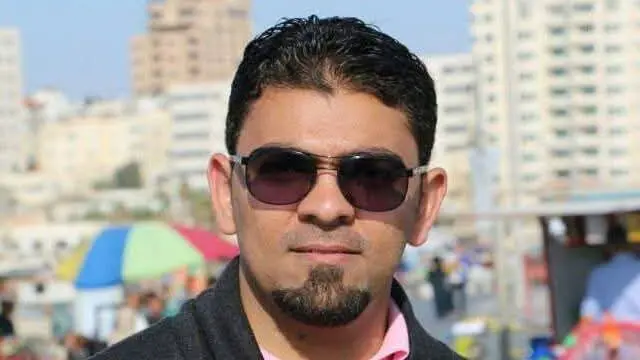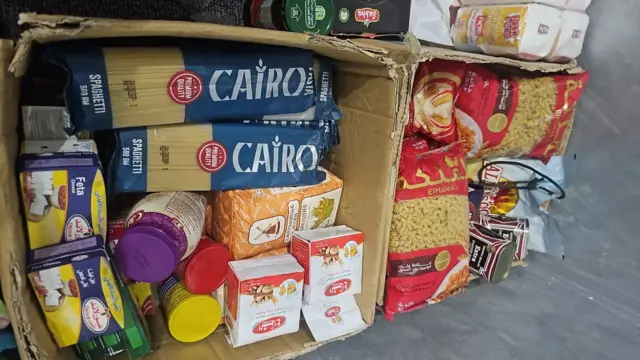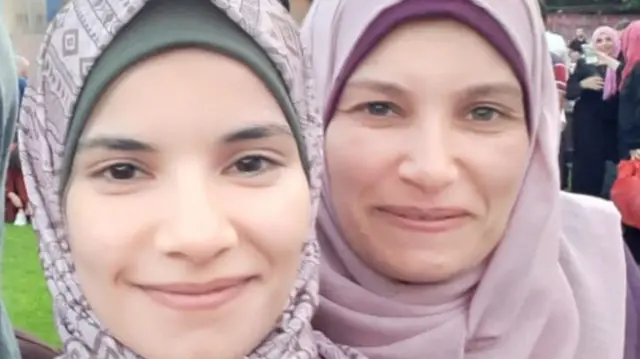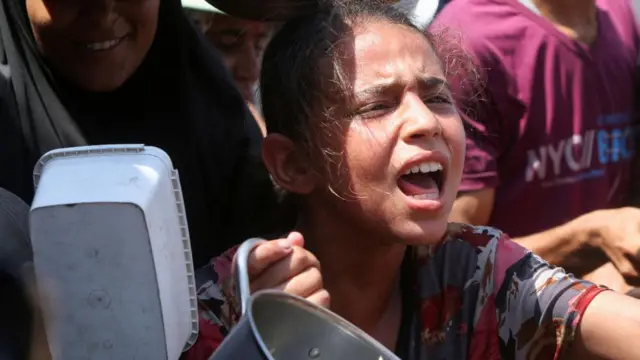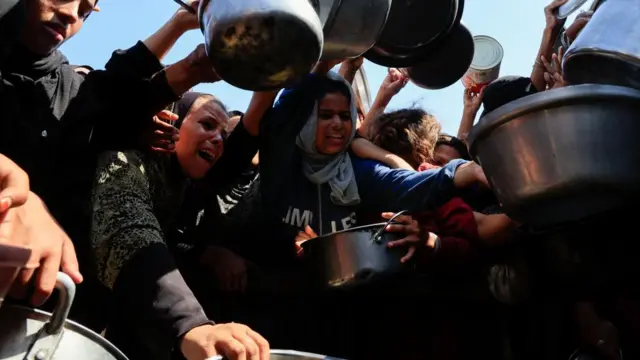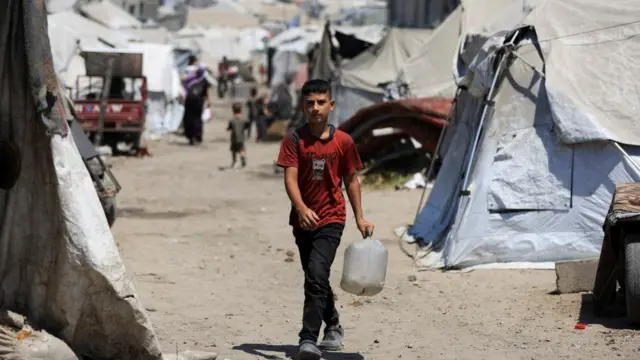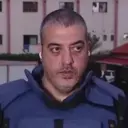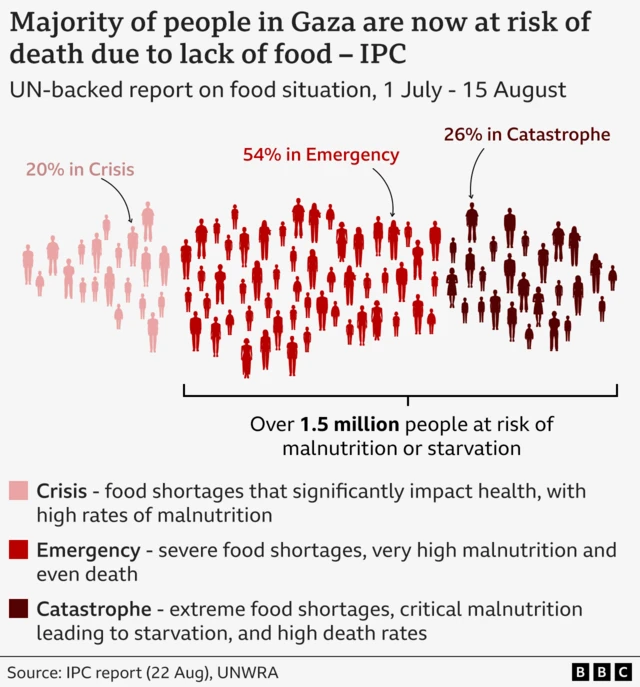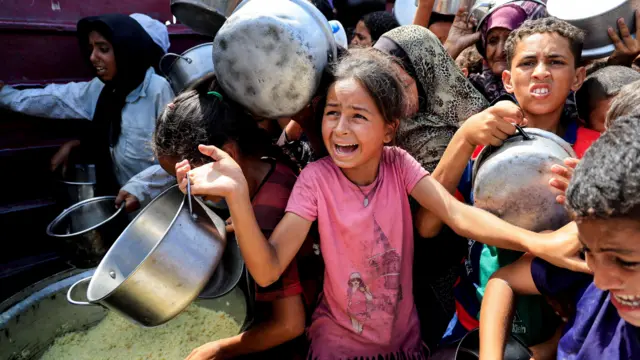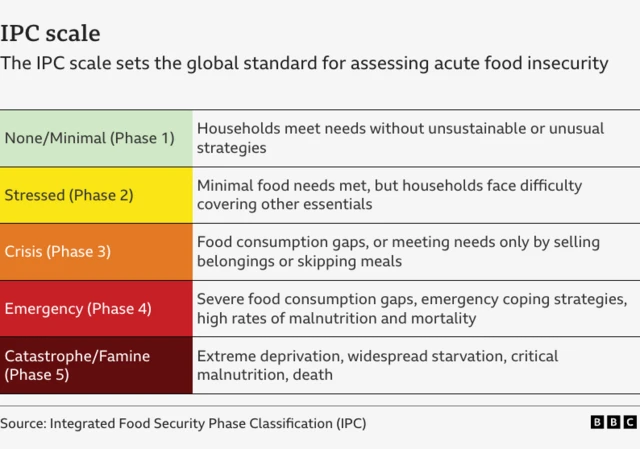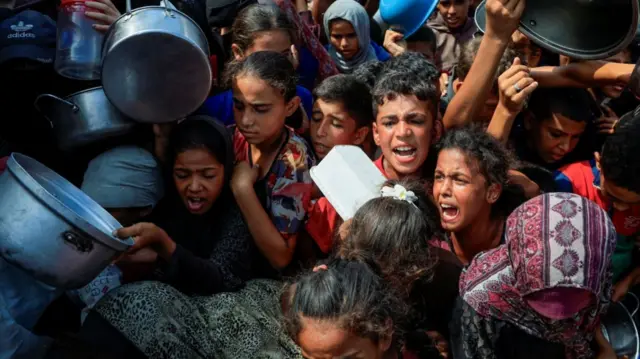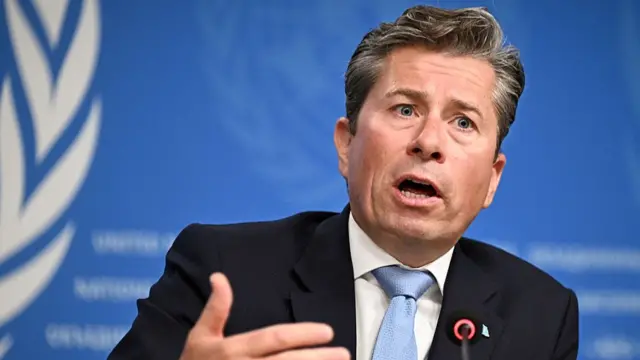'They do not have breakfast. They get dizzy from hunger'published at 13:59 BST 22 August
 Tom Joyner
Tom Joyner
Live reporter
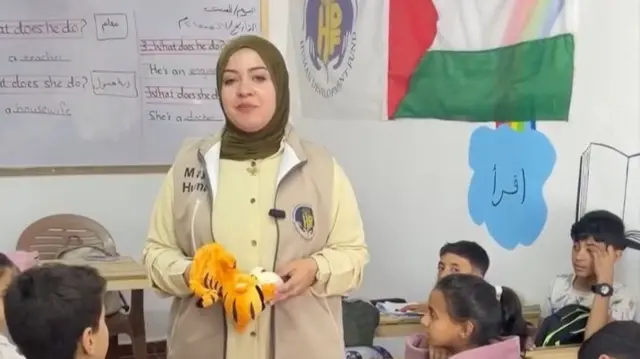
Mayed Hmaid tells me that she sees signs of hunger and starvation every day as part of her job.
She and her Palestinian colleagues run a small makeshift school in central Gaza, organising lessons for local children.
The aid workers do their best to make the classroom feel as normal as possible, but she says she can't help but watch as the children get worse each day.
“They do not have breakfast. They get dizzy from hunger. I want to cry,” she says.
Food prices are still sky high, and “there is nothing healthy like chicken, eggs, good vegetables, fruits,” she adds.
She documents her daily life to hundreds of thousands of followers on Instagram.
"I tell stories of hunger while living it myself," she says. "This is the reality we face every day in Gaza."
